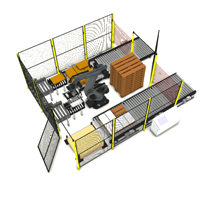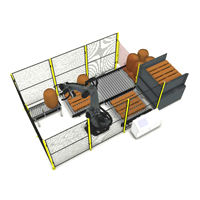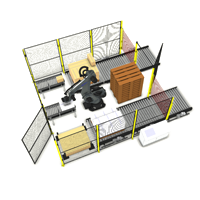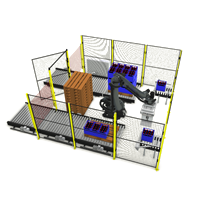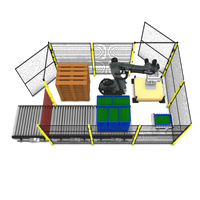As we all know, Covid-19 and automation is a pretty topical subject right now, but why exactly is this? Why is automation deemed to be so pivotal to the recovery of the UK Economy in the aftermath of Covid-19?
Let’s start by taking a step back in time…
Following the 2007-2009 recession, one of the reasons the UK has not returned to the pre-crisis growth trend on GDP per head is due to what is known as the ‘Productivity Puzzle’. Productivity in the UK has taken nearly 10 years to recover to pre-crisis levels. However, we know that increasing productivity is essential to improving the economy and our standard of living. This is not done by making people work harder or faster, it is achieved when each hour of input is made to yield more output per hour than before. This is explained in more detail in the video below.
See the full transcript here. https://www.granta-automation.co.uk/news/the-key-to-prosperity-and-better-standards-of-living/
So how does all this relate to automation and Covid-19?
In the wake of another economic downturn, we have the benefit of hindsight and reflection on previous economic downturns, and can use these to enable us to recover quicker from the current crisis.
Whilst the government have published their ‘Covid-19 Recovery Strategy’ there is pressure on them to publish a plan for the UK economic recovery. However, with the advantage of knowledge gained from previous recessions, we already know that increasing productivity is key to recovering quickly from this downturn. Automation has a key part to play in increasing productivity. Some specific examples of how automation will help us to recover from the situation created by Covid-19 are shown below.
Shift Work
As a result of Covid-19 there are two main reasons why shift work may have become a priority for some manufacturing companies; to meet additional demand, or additional shifts are now necessary as a result of social distancing measures.
There are a variety of different ways that automation can help assist with shift work. Processes can be automated to remove the need for manual labour, or automation can be used to assist production workers thus reducing the requirement for extra shifts to meet production requirements. Processes that can be quickly and easily automated are things such as palletising, quality checking, and box filling.
Social Distancing
As we all know, social distancing can create issues where your production process requires your employees to work closely together. Automation can be used to help overcome these barriers; processes can be fully automated to remove the need for manual labour, or partially automated to remove the need for more than one operator to complete the process.
Bringing Production Back In-house
With Covid-19 having caused such major disruption to supply chains, many companies are now looking to bring production processes back in-house or at least back home from abroad. As a result, this is causing many companies to re-think their entire production process and the way things are done. With the developments in automation over recent years, bringing production back in house, or back to the UK, does not necessarily mean an increase in the cost of goods produced. Payback can quickly be calculated using our Automation Project Payback calculator, and you will usually find that once you have also included the value of the intangible benefits of bringing production back in- house, the project payback time is very, very quick.
Increasing Productivity
One of the key takeaways from the Covid-19 epidemic for manufacturing companies, or those considering becoming a UK manufacturer, is that if we want to get ahead in the UK, our productivity (output per hour) must increase. One of the key methods of achieving this is by introducing automation. As you will have seen in the video above, if with automation one production worker can produce 50 widgets per hour rather than 10, output per hour increases by 500%! This shows how powerful automation is in increasing productivity. Find out what the productivity of your current production process is using our downloadable calculators.
If you would like to discuss anything in this article or require any further information, please don’t hesitate to contact us on 01223 499488 or helpline@granta-automation.co.uk.


